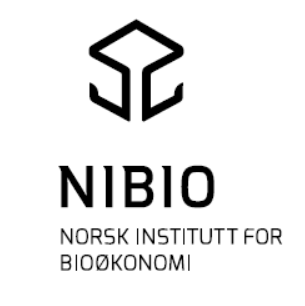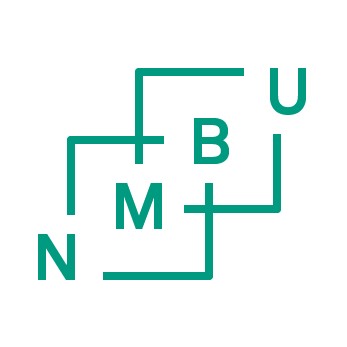You’ve reached the Global Research Alliance Norway page
The Norwegian Ministry of Agriculture and Food has been part of the GRA Council since the beginning of the network, and the Norwegian Institute of Bioeconomy Research (NIBIO) and the Norwegian University of Life Sciences (NMBU) are actively representing Norway in the following GRA research groups/networks:
- Croplands Research Group (CRG) – Simon Weldon
- Livestock Research Group (LRG) – Vibeke Lind and Angela Schwarm
- Integrative Research Group (IRG) – Daniel Rasse
In 2019, the Norwegian Parliament signed an agreement to follow the EU commitment of reducing emissions by 40% in 2030 as compared to the 1990-levels. Norway’s partnership with the GRA is therefore highly important given the current focus on national strategies to reduce greenhouse gas emissions from agriculture. In 2019, the Norwegian Government and representative organizations in the agricultural sector signed an agreement to evaluate mitigation measures relevant for Norwegian agriculture. In connection to this, NIBIO published a report concerning the possibilities and challenges for increased carbon sequestration in Norwegian agricultural soils (Rasse et al., 2019). All these activities are closely related to goals and strategies of the GRA.
Norway’s contribution to the CRG
Within the GRA-CRG the Peatland Management Network is co-coordinated by Simon Weldon (NIBIO) in collaboration with Dr Fahmuddin Agus from Indonesia (BRIN). The peatland group involves a range of members from countries representing both boreal and tropical peatland. With this initiative, the network has been making a joint effort for raising awareness about peatlands towards policymakers in participant countries and organized scientific sessions on peatland management at the European Geosciences Union (EGU) conference in 2017 and 2018.
Norway’s contribution to the LRG
NMBU (Angela Schwarm) and NIBIO (Vibeke Lind) are members of the Feed and Nutrition Network. Key activities were contributions to the meta-analysis papers, “Full adoption of the most effective strategies to mitigate methane emissions by ruminants can help the 1.5°C target by 2030 but not 2050″ (PNAS), “Prediction of enteric methane production, yield and intensity in dairy cattle using an intercontinental database” (Global Change Biology) and “Prediction of enteric methane emissions by sheep using an intercontinental database” (Journal of Cleaner Production), and to the review paper, “Uncertainties in enteric methane inventories, measurement techniques, and prediction models” (Journal of Dairy Science).
NIBIO participate in three ERA-net Co-funded projects within the “Circularity in mixed crop and livestock farming” call where GRA are a funding partner. NIBIO leads one of the funded projects. NMBU leads the Research Council of Norway-funded projects ViableCow, Seacow, ClimateForage (Klimagrovfor) and AlkaNor.
In Norway, the GreenFeed system is used for measuring enteric methane from dairy cattle and SF6-technique is used for both cattle and sheep experiments. In ongoing projects, we investigate the effect of feeding macroalgae, the compound bromoform found in macroalgae or biochar to dairy cows or sheep to mitigate enteric methane emissions. The in vivo trials are performed using open circuit respiration chambers. Furthermore, we investigate (i) the effect of pasture and grass silage quality on enteric methane emissions from dairy cattle, (ii) the long-term efficacy of 3-NOP in grass-silage fed animals, and (iii) the interactions between feed, microorganisms, immune response, methane yield/intensity and feed efficiency in ruminants.
Norway’s contribution to the IRG
NIBIO (Daniel Rasse) is part of the Soil Carbon Sequestration Network of the IRG. Participation to GRA-CIRCASA (now ORCaSa) meetings have led notably to contribution in the landmark method paper on MRVs (https://onlinelibrary.wiley.com/doi/full/10.1111/gcb.14815).
Other international activities relevant to the activities of the Soil Carbon Sequestration Network include participation to the Technical Advisory Group (TAG) on Soil Carbon Stock Changes in Grassland Systems set up by the Livestock Environmental Assessment and Performance (LEAP) Partnership of the FAO. And, most recently, participation to the EJP Soil project – European Joint Programme Co-fund on Agricultural Soil Management. The Norwegian participation is coordinated by NIBIO (Daniel Rasse), with key tasks of method harmonization for soil C monitoring across Europe and participation to eight internal projects where climate smart soil management is a central issue.
Through the GRA-IRG and other international efforts, Norway helps develop and implement methods for monitoring, reporting and verifying gains in soil carbon under improved agricultural management practices. This activity is highly needed as Norway evaluates which management practices to prioritize (e.g. cover crops, biochar) and the need for a national inventory of the carbon content of agricultural soils.



